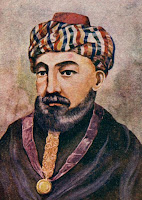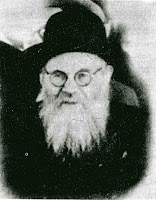In Parshas Va'eira we read of the first seven of the ten plagues that God inflicted upon the Egyptians. Before the plagues, God instructed Moses to go and speak to Pharaoh, demanding that he allow the Jewish people to go free. In the course of these instructions, God tells Moses (Exodus 7:3), "ואני אקשה את לב פרעה" - "And I shall harden Pharaoh's heart" - and that Pharaoh would not listen to his pleas and God would perform many "signs and wonders" and would take the Jewish people out of Egypt "with an outstretched hand". And indeed, we find that after the sixth, eighth, ninth, and tenth plagues that "God strengthened the heart of Pharaoh", ultimately culminating in the destruction of the Egyptian army in the Red Sea.
Many commentators discuss how we are to understand the concept of God "hardening" Pharaoh's heart. if God hardened Pharaoh's heart, then how could he be held responsible for his actions? Moreover, one of the most basic principles of Judaism is the concept of free-will. Yet these passages imply that free-will is not guaranteed, and that it is possible that a person could lose his free-will.
 |
| Maimonides Traditional Depiction |
Indeed, Maimonides explains that it is possible for a truly wicked person to be punished with the loss of his free will, making it impossible for him to repent for his evil deeds. He writes (Hil. Teshuva 6:3):
It is possible that a person would commit so great a sin, or so many sins, to the point that justice demands from the True Judge that the punishment appropriate for the willful sins of this sinner is that teshuva (repentance) should be withheld from him and he should lose the ability to turn from his evil, so that he will die and be lost in the sins he has committed. ...
Therefore it says in the Torah (Exodus 14:4), "I shall strengthen the heart of Pharaoh," for Pharaoh had sinned on his own volition and was wicked towards the people of Israel that dwelt in his land.... Justice required that teshuva be withheld from him until he had been punished. God therefore hardened his heart.
In his commentary on this verse, the Ramban also addresses this issue and provides two answers. The first answer is identical with the approach of Maimonides. In his second answer, however, the Ramban argues that the "hardening" of Pharaoh's heart does not refer to a loss of free-will, but the opposite, that God gave Pharaoh the strength of will to be able to defy God despite the incredible pressure brought about by the plagues. At no point did Pharaoh actually desire to let the Jewish people go. It was only that, after all of these plagues, he simply did not have to strength to continue fighting. Thus God strengthened the will of Pharaoh, leaving him free to make the choice that he wished to make.
This approach is also taken by the Seforno (commentary on Torah by R' Ovadia Seforno, d.1550) and the Sefer HaIkkarim (philosophical work by R' Joseph Albo, d.1444) and appears to be the dominant approach taken by most later commentators as well. Among these later commentators is the famous Dubno Maggid, R' Yakov Kranz (d.1804), in his commentary (Kochav L'Yakov on the haftara of Lech Lecha) on the verse (Isaiah 40:29), "He gives strength to the weary, and for the powerless He gives abundant might." The Dubno Maggid cites the famous medrash about Joseph in the house of Potiphar, that states that Joseph was on the verge of succumbing to the seductive ploys of his master's wife, when God sent him a vision of his father, Jacob. This vision inspired Joseph to absolutely reject the sinful advances of Potiphar's wife. The Dubno Maggid asks why the Sages revealed this fact, which would appear to reflect so poorly on Joseph, as he was on the verge of committing such a severe sin and was only prevented from doing so by a Divine vision? Moreover, doesn't this diminish the free-will of Joseph? (Indeed, the Sages view Joseph's resistance to Potiphar's wife as one his greatest acts of righteousness - "for he sanctified the Name of God in secret" (Sotah 10b). Yet how many people would commit a sin immediately after receiving a prophetic vision?)
The Dubno Maggid therefore explains that the reality was that Joseph had absolutely no desire to sin and had resisted Potiphar's wife with all his strength. But ultimately, the pressure of her campaign had simply become too much for him. He simply did not have the strength to fight any longer (which, if we imagine his circumstances, as a young slave in a foreign land with no moral support of any kind, is not surprising). He was on the verge of succumbing to sin, not because of desire, but because he had reached the limits of his strength to fight. At this point, God gave him renewed strength by sending him a vision. This is the idea expressed in the verse that God "gives strength to the weary," which, the Dubno Maggid explains, is fundamentally the same thing that happened with Pharaoh. In both cases, God gave them the renewed strength of will to resist what would otherwise have been overwhelming pressure. The difference between the two is only that in the case of Joseph his true desire was to do what was right, and in the case of Pharaoh his true desire was to do evil.
These two approaches may be reflected in the debate between the Sages, R' Yochanan and R' Shimon Lakish, in the medrash (Shemos Raba 13:3, cited in the Ramban):
"For I have hardened his heart." (Exodus 10:1) - R' Yochanan said, "This gives an opening for heretics to claim that he had no opportunity to repent!" R' Shimon ben Lakish said to him, "May the mouths of the heretics be sealed! Rather, [the true understanding is] "He mocks the mockers" (Proverbs 3:34) - He warns him once, twice, and a third time, and he [still] does not repent, and He closes his heart to repentance in order to punish him for his sin. So it was with the wicked Pharaoh. Once God had communicated with him five times (i.e. the first five plagues) and he paid no heed, God said to him, 'You have stiffened your neck and hardened your heart, behold, I shall add impurity upon your impurity!"
The Yefeh To'ar (commentary on Midrash Raba by R' Shmuel Yafa Ashkenazi, 16th century) argues that R' Yochanan follows the second approach that we have described, that Pharaoh did not lose his free will. Thus he says that a simple reading of the verse would seem to support to the claims of the heretics that Pharaoh had no free-will and therefore did not deserve to be punished. R' Shimon ben Lakish, however, following the approach of Maimonides, says that Pharaoh did indeed lose his free will, but that the arguments of the heretics are nevertheless baseless, for this was his punishment for his extreme wickedness.
 |
| R' Elya Lopian |
Whether we follow the interpretation of the Yefeh To'ar or not, it would seem clear that R' Shimon ben Lakish is the following the approach of Maimonides, that Pharaoh did indeed lose his ability to repent for his sins. However, in Lev Eliyahu (vol.2, p.49), R' Elya Lopian (d.1970) argues - emphatically - that teshuva is always possible, stating:
Know and remember this: That one who says, "I am unable to break my desire and stand up against my nature," this is heresy. As we see in the debate between R' Yochanan and R'Shimon ben Lakish... that both agree that this is what is said by heretics.
(Thus, in a lengthy note on the Lev Eliyahu (p.49-51), R' Sholom Schwadron (d.1997) argues (based upon a later passage in Hil. Teshuva) that even according to Maimonides, it is possible for a person to regain his ability to repent through prayer.)
Instead, R' Elya Lopian (p.44) understands the opinion of R' Shimon ben Lakish to mean not that God takes away the sinner's ability to repent, but rather that God ceases to reach out to the sinner to motivate him to repent.
This idea is also found in the Kedushas Levi (R' Levi Yitzchak of Berdichev, d.1809). The Kedushas Levi (Deuteronomy 28:1) states that the Sages tell us that there is a Heavenly voice that calls out every day, "Return, O wayward sons!" (Jeremiah 3:22). This Heavenly voice is heard, on a spiritual level, by every Jew, and it serves to arouse his soul to repentance. However, the Sages tell us of certain Sage, R' Elisha ben Avuya, who became a heretic and became known as Acher. On a few instances, when asked why he did not repent from his sins, he responded that he had heard a Heavenly voice call out, "Return, O wayward sons! - Except for Acher!" (Chagiga 15a)
The Kedushas Levi explains that Acher did not lose the ability to repent, and if he had repented, his repentance would have been accepted. What Acher had lost was the daily Divine inspiration towards repentance that is the normal state for every Jew. Acher's sins were so great that the Heavenly voice no longer functioned to arouse his soul to repentance. For Acher, without that Divine inspiration, repentance would be far more difficult than for an ordinary Jew, but it remained within his power to do.
1 comment:
Great vort again!
Post a Comment